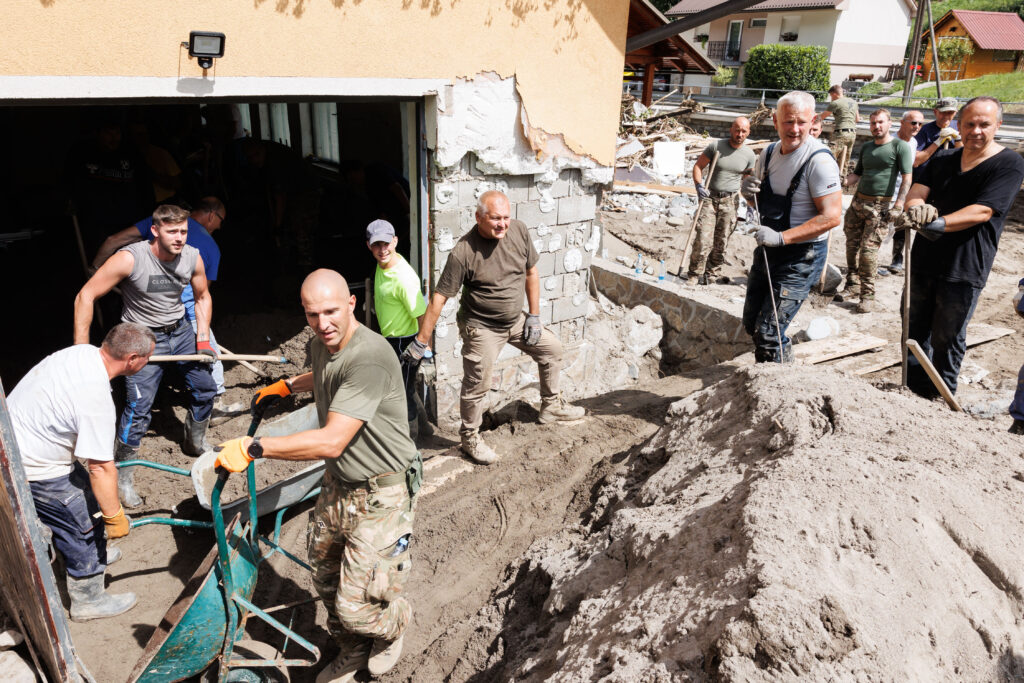Just a few months ago, the Minister of Labour, Family, Social Affairs and Equal Opportunities, Luka Mesec, was enthusiastic about the introduction of a four-day workweek, but since then, the ruling coalition has already changed its tune. Instead, they now want people to work on Saturdays and use their daily wages for flood reconstruction. They will strip poor people of everything they have, including their salaries, just to avoid having to take money away from their NGO “parasites”.
The leader of the opposition, Janez Janša, recently warned on RTV Slovenia’s show Odmevi (Echoes) that the government of Robert Golob had raised the funding for wasteful studies and non-governmental organisations from 8 percent to over 20 percent! He also pointed out that the government took money intended for flood protection and reallocated it to these political paramilitaries. And now, the government wants to fix what it has done by putting the financial burden on the working people.
Just like in Tito’s Yugoslavia: the government is introducing forced labour!
There has been some talk of introducing free working Saturdays, announced by two representatives of the ruling party. One is an MP of the Freedom Movement party (Gibanje Svoboda), Tamara Vonta, who wrote: “All days, every Saturday, all those socialist Saturdays that we worked, or my parents worked, for the cultural centres, for those victims of the earthquake in the former Yugoslavia, and so on. This is coming, these are the next steps.”
Forced solidarity: the government would help by using others’ hands!
In addition, Minister of Foreign and European Affairs Tanja Fajon confirmed that the idea is not completely irrelevant: “In the spirit of social democracy, we propose to first help those who lost everything in the devastating floods. Every second Saturday will be a solidarity Saturday, and companies will be able to contribute their profits to the Reconstruction Fund.” In good old leftist fashion, the government would like to use other people’s hands to help, with forced solidarity, which we are already familiar with from the case of migrant quotas at the European Union level.
Domen Mezeg


